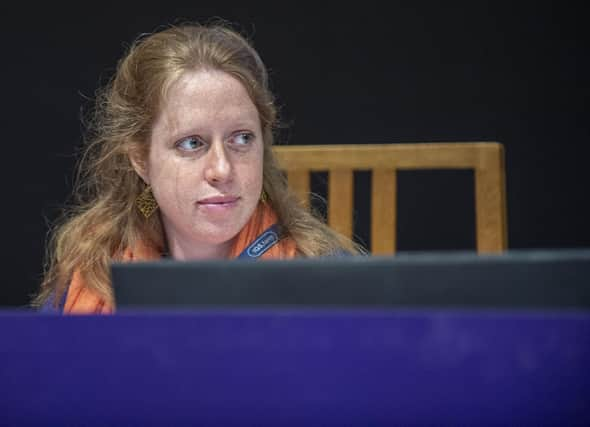Data conference: Employment Futures discussion


Toni Scullion, a computing science teacher in Scotland who founded the dressCode charity, which aims to make a dent in the sector’s persistent disparity in gender representation, told the panel: “I’m hugely passionate about inspiring more pupils into computer science and technology, and closing the gender gap.”
She added that thousands of people are being reached out to every year across the country’s primary and secondary schools as part of the drive to increase diversity.
Advertisement
Hide AdAdvertisement
Hide AdDavid Hiddleston, curriculum portfolio manager for Data Driven Innovation Skills, discussed what is being done to help build a workforce with talents suitable for future roles. He explained that the emphasis is on partnership, working with schools, colleges and universities.
“We are not just producing data scientists. We are embedding data science across the curriculum,” Hiddleston added.
He gave the example of data being used in areas such as social care, saying there is also a focus on specific groups, including data science for armed forces veterans, and women working in data.
Fellow panel member Emily Seward, head of data at Intelligent Growth Solutions (IGS), a global vertical farming technology firm headquartered in Scotland, covered the nature of her business and the types of skills it requires.
She explained how vertical farming has the potential to shorten supply chains. Data is gathered by IGS to allow growers to make the best decisions to enable farming to be done in the most efficient way. By gathering pertinant data, variables such as temperature can be better controlled.
Seward’s team is made up of people from a range of backgrounds, including data engineering, data science and infrastructure. She informed the panel that the desired qualities for members of the teaminclude resilience and versatility.
Asked about how Scotland is doing when it comes to telling school pupils about opportunities to work in tech, including data and artificial intelligence (AI), Scullion was blunt: “We’re not doing well enough.”
She believes that – despite some admitted pockets of excellence – a lack of teachers with the right skills and ongoing issues around access are the biggest challenges to overcome.
Advertisement
Hide AdAdvertisement
Hide AdTo help address this situation, Scullion would like to see industry and education working together to a greater extent: “There is a huge opportunity to do more by weaving industry into the curriculum.”
Expanding on the topic, Hiddleston said that data science is a relatively new introduction to schools, but partnership working is now seeing colleges collaborate more with them.
In terms of increasing engagement, he said: “Parents have to know what data science is to encourage children into that pathway.”
On the importance of data, Seward described it as a “bit like magic” or a “superpower”, in allowing people to see things that others might miss.
The panel was then asked how to best respond to the needs of industry when it comes to data and ensuring the workforce has appropriate skills. Hiddleston responded that three sets of skills are vital – technical, meta, and transferable.
Moving on to AI, it was recognised that there is a need to build teachers’ knowledge and awareness.
Meanwhile, Seward said that while AI has a role to play at IGS, only about 20 per cent of its models rely on it. AI, therefore, does not need to be part of everything data-related, she added.
Looking ahead to what improvements can be made in schools to build data skills among students, Scullion said she would like computing science tobecome a core part of the curriculum – as important as the likes of English and maths. She said that “equity of access” is needed to stop thousands of pupils “falling through the gap”.
And Hiddleston added that while exams have a role to play, there are other types of assessment which should be given the same level of priority by awarding bodies.